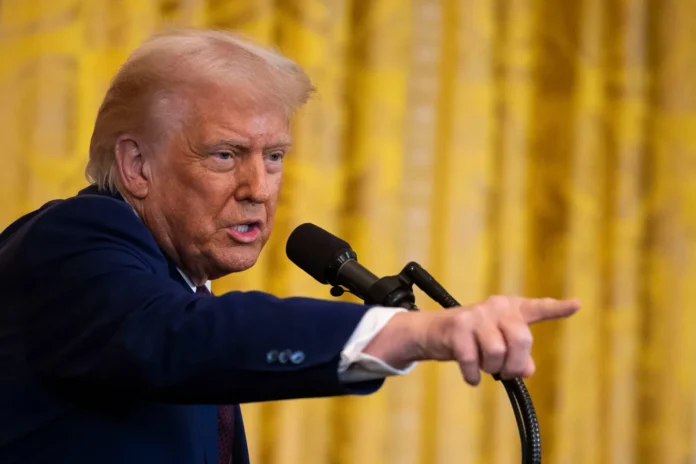
Donald Trump has imposed a 25 percent tariff on steel and aluminum imports from Brazil.
The decision will take effect on March 12 and is expected to cause major disruptions for Brazilian exporters.
Steel Exports Face Billions in Losses
In 2024, Brazil exported 5.8 million metric tons of steel to the United States, valued at $4.1 billion.
The exports accounted for 60 percent of Brazil’s total steel shipments.
The new tariffs could reduce Brazil’s steel exports by up to $700 million, according to Bradesco’s economic research department.
Major producers such as Gerdau and CSN are already preparing for a decline in demand. Some have started cutting production to avoid surplus stock.
Others are looking at alternative markets, with China and Europe as the most likely destinations.
Brazil Threatens Trade Retaliation
Vice President Geraldo Alckmin has called for direct negotiations with the United States. He suggested that quotas could replace tariffs as a compromise.
President Lula da Silva took a stronger stance, saying that Brazil will not stand by while its economy takes a hit. The government is considering filing a complaint with the World Trade Organization and placing new taxes on American goods.
#LaSillaEnVivo | Brasil 🇧🇷 amenaza a EE.UU. con represalias si impone aranceles.
🗣️”Si él grava los productos brasileños, habrá reciprocidad a la hora de gravar los productos que son importados de EE.UU.”, dijo el presidente @LulaOficial.
“Que Trump respete a Brasil”, añadió. pic.twitter.com/YHfnJYS3j5
— La Silla Vacía (@lasillavacia) January 30, 2025
Officials are looking at possible tariffs on United States agricultural products. American farmers export billions of dollars in soybeans, corn, and beef to Brazil every year. A tax on those goods would serve as a direct response to the steel tariffs.
Impact on the United States Market
American manufacturers depend on Brazilian steel, especially semi-finished products used in construction and automobile production. The tariffs will raise costs for companies that rely on cheap imports. Many businesses will be forced to look for alternative suppliers, which could slow production and increase prices for consumers.
United States steel producers have praised the decision, saying it will help domestic firms. However, economists warn that higher steel prices could hurt industries that need affordable materials. The construction and automobile sectors are expected to see some of the biggest cost increases.
Tensions Rise as Trade War Expands
Trump has targeted several countries with new tariffs, including China, the European Union, and Mexico. Brazil is now among those facing economic pressure from new trade policies.
The Brazilian government is weighing its response. A direct trade war could escalate if Brazil moves forward with retaliatory tariffs. Both countries now face a critical decision on whether to negotiate or take the fight further.
With the March 12 deadline approaching, pressure is building. If no agreement is reached, Brazil will take a major economic hit, and the conflict could have ripple effects on global trade.
Donald Trump has dominated headlines daily since taking office, especially with his proposed tariffs, pressure on NATO members to increase spending, and plans for an iron dome in the United States. Another plan that causes panic among many people is his plan to suspend the Student Loan Forgiveness program.
Update – The US appears set to make a new deal with Canada, ending a potential trade war. However, a similar agreement with Brazil seems unlikely.
















